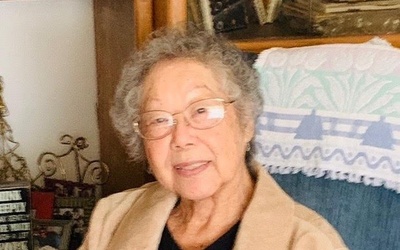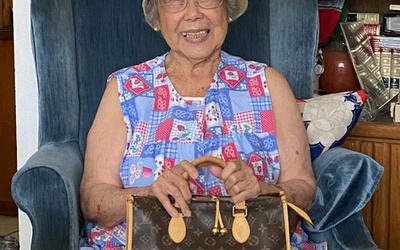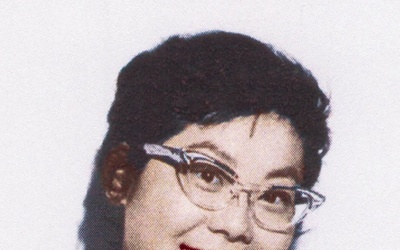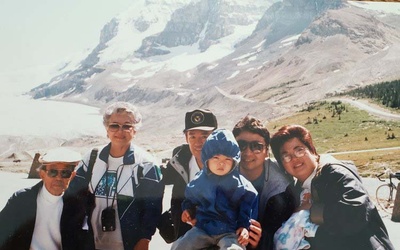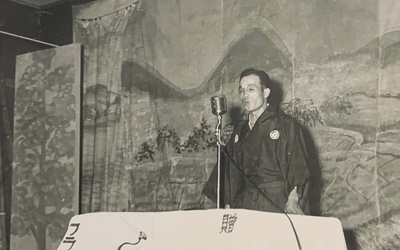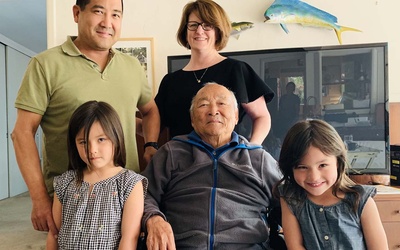Tessaku
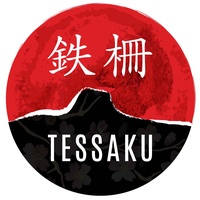
Tessaku was the name of a short-lived magazine published at the Tule Lake concentration camp during World War II. It also means “barbed wire.” This series brings to light stories of the Japanese American internment, illuminating those that haven’t been told with intimate and honest conversation. Tessaku brings the consequences of racial hysteria to the foreground, as we enter into a cultural and political era where lessons of the past must be remembered.
Stories from this series
Setsuko Moriya — Part 3
Feb. 19, 2023 • Emiko Tsuchida
Read Part 2 >> What is that story? He didn't have any papers, so I guess he got on the ship. But he worked on the ship, so he might have learned to cook there, too. But when he got here, you know how they quarantine you for many days, many weeks? At that time, he escaped and came to Washington. It was in February and it was so cold to swim that water, from the boat to Washington. So …
Setsuko Moriya — Part 2
Feb. 12, 2023 • Emiko Tsuchida
Read Part 1 >> So they're doing chicken farming and so I imagine for them they, they had to give up their farm when the war broke out or after the order was signed. Is that right? Well, I think in those areas everybody was friends, so some white family did take over the farm for them, took care of it. It could have been, "You just watch the farm and it's all yours for a while, right?” But they still …
Setsuko Moriya — Part 1
Feb. 5, 2023 • Emiko Tsuchida
“When you think about now, politically, we listen to the news of what’s happening in Washington. In those days, my father was not political. He was just here to make money and to survive.” — SETSUKO MORIYA Growing up in downtown Sacramento before the war, Setsuko (Shimono) Moriya recalls the tight-knit community of the old Japantown. In the heart of what was once a thriving downtown scene, Setsuko’s parents operated a busy restaurant serving American food. Her father, Masuichi Shimono, …
Doug Matsuda - Part 2
Dec. 5, 2021 • Emiko Tsuchida
Read Part 1 >> When did your dad start sharing what happened in camp? I would ask him every once in a while and he would tell me little things. He’d say, “You know the first week we were there we had to make our own meals. Nothing was set up yet so we had to eat outside. So one day we were all ready to eat, everything was all set and the food was cooked and everything, and this …
Doug Matsuda - Part 1
Nov. 28, 2021 • Emiko Tsuchida
“If I was my dad, I would’ve done the same thing. You’ve taken everything away from us, now you want us to fight for this stinkin’ country? No way.” —Doug Matsuda In the middle of a cold, January night in 1943 in the Arizona desert, eight young men ventured out between rows of barracks to convene in front of Block 215, room D. Carrying heavy wood clubs and donning handkerchiefs to mask their faces, they went over once more the …
Leland Inaba - Part 4
Nov. 21, 2021 • Emiko Tsuchida
Read part 3 >> Now, jumping ahead to when the redress happened and the Civil Liberties Act was passed. What do you remember about receiving the apology or what was your reaction to getting the letter and then the redress? I don't think I even read the letter. You didn't read the letter? I don't remember. I don't even remember receiving the money. I guess my parents probably put it in the bank for themselves. That was $20,000 per person …

